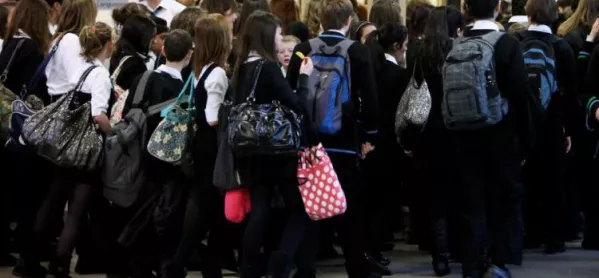Only a third of children from “just about managing” (JAM) families in selective areas are likely to obtain a place at a grammar school, according to new research.
The study, which is the first of its kind to examine the impact of selection on JAM families, has found that, in contrast, the very richest families in these selective areas have an 80 per cent chance.
The report, written by researchers from the UCL Institute of Education, University of Bristol and University of Warwick, comes a day after the Conservatives confirmed plans to expand selection.
The party’s manifesto said: “Contrary to what some people allege, official research shows that slightly more children from ordinary, working class families attend selective schools as a percentage of the school intake compared to non-selective schools.”
But Professor Simon Burgess, from University of Bristol, a co-author of the new research said: “A grammar school system - selection by ability - is often proposed as a way to boost social mobility. More recently, this seems to be the view of the UK Prime Minister.
“However, our research shows there is no support for this in the data. We have shown that only among the very affluent do more than half of the pupils get into a grammar school; the grammar system has nothing to offer most families.”
The new findings also reveal that selective education harms the university prospects of bright pupils who didn’t manage to get into a grammar school.
Primary school children, who perform well in key stage 2 assessments but miss out on grammar school, are 3 percentage points less likely to attend university - and 8 percentage points less likely to attend a high-quality university - compared to similar peers in non-selective areas.
They are also less likely to get a good degree (2:1 or above) and have a greater chance of dropping, the study, Assessing the role of grammar schools in promoting social mobility, finds.
Dr Lindsey Macmillan, a co-author of the report from IOE, says: “By comparing higher education outcomes between those attending similar schools in selective compared to non-selective areas, we show that the outcomes for those who just miss out on attending a grammar are significantly worse than the outcomes for similar pupils attending similar schools in non-selective areas.
“This is a prime example of the harm a selective system can do to attainment and later life chances.”
Professor Burgess said: “Taken together, our results suggest that access to grammar schools is strongly related to family background, even conditional on KS2 attainment, and the cost of not accessing a grammar school in a selective area is high in terms of later outcomes. This combination in access and harm in outcomes serves to exacerbate inequalities across generations, severely limiting equality of opportunity and life chances of those from more deprived families.”




